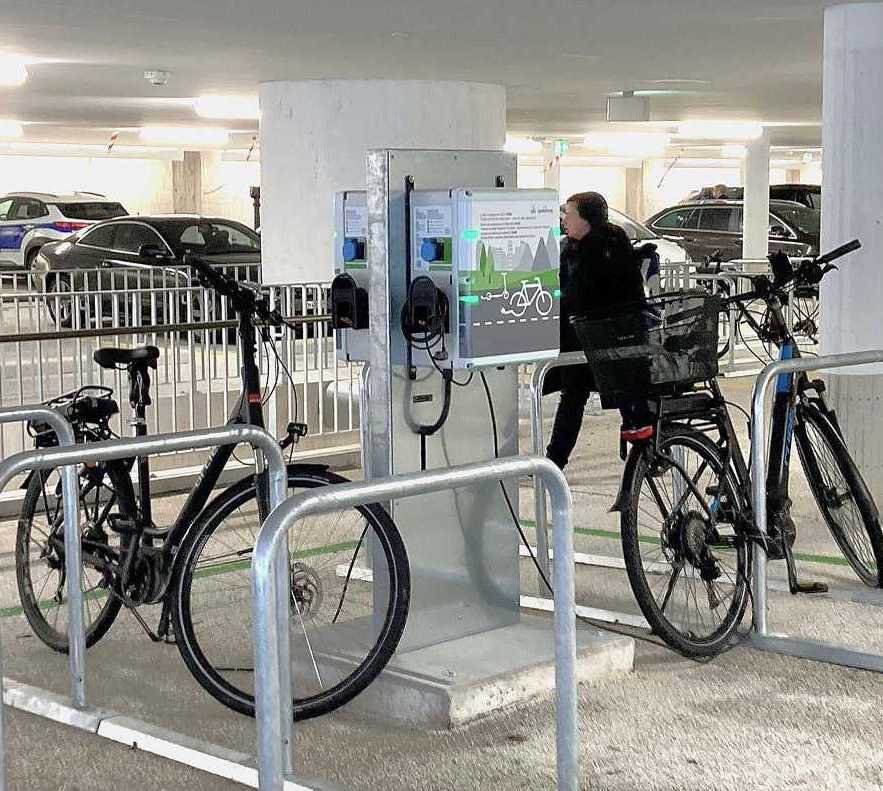- E-SCOOTER
- E-SCOOTER
- ROAD APPROVED
- VSETT 10+ Apex Swiss Edition
- VSETT 8+ Apex Swiss Edition
- Kaabo Mantis X PLUS Swiss Edition
- Vsett 8 Swiss Edition
- E-TWOW Booster S Swiss Edition
- VSETT Mini
- Inmotion AIR PRO Swiss
- APOLLO City Swiss Edition
- APOLLO Air Swiss Edition
- Dualtron Mini Special
- VSETT 8+ LifeRacer Edition
- E-TWOW GT SL Swiss Edition
- Kuickwheel S1-C PRO
- VSETT 8 LifeRacer Edition
- Vsett 9 Swiss Edition
- VSETT 9+ Swiss Edition
- VSETT 9+ LifeRacer Edition
- VSETT 10+ LifeRacer Edition
- Vsett 8+ Swiss Edition
- Vsett 8 Swiss Edition
- MUKUTA
- VSETT
- VSETT Mini
- VSETT 8+ Apex Swiss Edition
- Vsett 8 Swiss Edition
- VSETT 8 LifeRacer Edition
- Vsett 8+ Swiss Edition
- VSETT 8+ LifeRacer Edition
- Vsett 9 Swiss Edition
- VSETT 9+ Swiss Edition
- VSETT 9+ LifeRacer Edition
- Vsett 10+
- Vsett 11+
- VSETT 11+ Silver Edition
- VSETT 10+ LifeRacer Edition
- VSETT 10+ Apex Swiss Edition
- Vsett 11+ Super
- KAABO
- Kaabo Mantis X PLUS Swiss Edition
- Kaabo MANTIS 10 SWISS
- Kaabo MANTIS 10 SWISS+
- Kaabo MANTIS 10 GT
- Kaabo MANTIS 10 PRO
- Kaabo Mantis King GT Electric Scooter
- Kaabo WOLF WARRIOR X PLUS – GOLD
- Kaabo WOLF WARRIOR X PRO
- Kaabo WOLF KING
- Kaabo WOLF KING GT PRO
- Kaabo WOLF KING GT PRO+
- Kaabo Wolf Warrior King GTR
- INMOTION
- APOLLO
- DUALTRON
- NAMI
- E-TWOW
- KUICKWHEEL
- Second hand & Refurbished
- PRE-ORDER SALE
- E-BIKE
- ACCESSORIES
- SPARE PARTS
- E-Scooter 0%-Financing
- Blog
- Shop & Repair
- Contact Us

- E-SCOOTER
- E-SCOOTER
- ROAD APPROVED
- VSETT 10+ Apex Swiss Edition
- VSETT 8+ Apex Swiss Edition
- Kaabo Mantis X PLUS Swiss Edition
- Vsett 8 Swiss Edition
- E-TWOW Booster S Swiss Edition
- VSETT Mini
- Inmotion AIR PRO Swiss
- APOLLO City Swiss Edition
- APOLLO Air Swiss Edition
- Dualtron Mini Special
- VSETT 8+ LifeRacer Edition
- E-TWOW GT SL Swiss Edition
- Kuickwheel S1-C PRO
- VSETT 8 LifeRacer Edition
- Vsett 9 Swiss Edition
- VSETT 9+ Swiss Edition
- VSETT 9+ LifeRacer Edition
- VSETT 10+ LifeRacer Edition
- Vsett 8+ Swiss Edition
- Vsett 8 Swiss Edition
- MUKUTA
- VSETT
- VSETT Mini
- VSETT 8+ Apex Swiss Edition
- Vsett 8 Swiss Edition
- VSETT 8 LifeRacer Edition
- Vsett 8+ Swiss Edition
- VSETT 8+ LifeRacer Edition
- Vsett 9 Swiss Edition
- VSETT 9+ Swiss Edition
- VSETT 9+ LifeRacer Edition
- Vsett 10+
- Vsett 11+
- VSETT 11+ Silver Edition
- VSETT 10+ LifeRacer Edition
- VSETT 10+ Apex Swiss Edition
- Vsett 11+ Super
- KAABO
- Kaabo Mantis X PLUS Swiss Edition
- Kaabo MANTIS 10 SWISS
- Kaabo MANTIS 10 SWISS+
- Kaabo MANTIS 10 GT
- Kaabo MANTIS 10 PRO
- Kaabo Mantis King GT Electric Scooter
- Kaabo WOLF WARRIOR X PLUS – GOLD
- Kaabo WOLF WARRIOR X PRO
- Kaabo WOLF KING
- Kaabo WOLF KING GT PRO
- Kaabo WOLF KING GT PRO+
- Kaabo Wolf Warrior King GTR
- INMOTION
- APOLLO
- DUALTRON
- NAMI
- E-TWOW
- KUICKWHEEL
- Second hand & Refurbished
- PRE-ORDER SALE
- E-BIKE
- ACCESSORIES
- SPARE PARTS
- E-Scooter 0%-Financing
- Blog
- Shop & Repair
- Contact Us

- E-SCOOTER
- E-SCOOTER
- ROAD APPROVED
- VSETT 10+ Apex Swiss Edition
- VSETT 8+ Apex Swiss Edition
- Kaabo Mantis X PLUS Swiss Edition
- Vsett 8 Swiss Edition
- E-TWOW Booster S Swiss Edition
- VSETT Mini
- Inmotion AIR PRO Swiss
- APOLLO City Swiss Edition
- APOLLO Air Swiss Edition
- Dualtron Mini Special
- VSETT 8+ LifeRacer Edition
- E-TWOW GT SL Swiss Edition
- Kuickwheel S1-C PRO
- VSETT 8 LifeRacer Edition
- Vsett 9 Swiss Edition
- VSETT 9+ Swiss Edition
- VSETT 9+ LifeRacer Edition
- VSETT 10+ LifeRacer Edition
- Vsett 8+ Swiss Edition
- Vsett 8 Swiss Edition
- MUKUTA
- VSETT
- VSETT Mini
- VSETT 8+ Apex Swiss Edition
- Vsett 8 Swiss Edition
- VSETT 8 LifeRacer Edition
- Vsett 8+ Swiss Edition
- VSETT 8+ LifeRacer Edition
- Vsett 9 Swiss Edition
- VSETT 9+ Swiss Edition
- VSETT 9+ LifeRacer Edition
- Vsett 10+
- Vsett 11+
- VSETT 11+ Silver Edition
- VSETT 10+ LifeRacer Edition
- VSETT 10+ Apex Swiss Edition
- Vsett 11+ Super
- KAABO
- Kaabo Mantis X PLUS Swiss Edition
- Kaabo MANTIS 10 SWISS
- Kaabo MANTIS 10 SWISS+
- Kaabo MANTIS 10 GT
- Kaabo MANTIS 10 PRO
- Kaabo Mantis King GT Electric Scooter
- Kaabo WOLF WARRIOR X PLUS – GOLD
- Kaabo WOLF WARRIOR X PRO
- Kaabo WOLF KING
- Kaabo WOLF KING GT PRO
- Kaabo WOLF KING GT PRO+
- Kaabo Wolf Warrior King GTR
- INMOTION
- APOLLO
- DUALTRON
- NAMI
- E-TWOW
- KUICKWHEEL
- Second hand & Refurbished
- PRE-ORDER SALE
- E-BIKE
- ACCESSORIES
- SPARE PARTS
- E-Scooter 0%-Financing
- Blog
- Shop & Repair
- Contact Us

How much does it cost and where to charge an e-Scooter in Switzerland?
With the booming popularity of electric scooters, many people are left wondering, how much does cost and where do you charge electric scooters? Thankfully, charging an electric scooter is an easy and convenient process. In this guide, we’ll cover the different charging options available to you and we dissect the precise cost of charging your electric scooter in Switzerland.
To calculate the total cost of charging your electric bike, you need to find the capacity of your battery in Watt hours (Wh), convert Wh into kilowatt-hours (kWhs) and then multiply this by the unit price charged by your electricity provider.
The capacity of batteries is measured in Wh. If you don’t know the Wh of your battery (and if it’s not written anywhere), simply multiply its Voltage (V) by the Amp hours (Ah). Here’s the formula:
V x Ah = Wh
For example, a 36V 10.4Ah battery has a 374.4Wh capacity: 36V x 10.4Ah = 374.4Wh
2. Convert the capacity into kWhs
Electricity providers typically use kWhs when billing customers – they refer to 1 kWh as 1 unit of electricity. Therefore, we need to convert your battery’s Wh (i.e. the capacity of your battery that you calculated in Step 1 above) into kWh. To do this, simply divide your Wh by 1,000. Here’s the formula:
Wh / 1000 = kWh
For example, our 374.4Wh battery converts to 0.3744kWh: 374.4Wh / 1000 = 0.3744kWh
3. Finally, multiply your battery’s kWh by your electricity provider’s kWh rate
So the final calculation that we need to do is multiply how much your electricity provider charges per kWh (i.e. per unit of electricity) by your battery’s kWh. Here’s the formula:
Your battery’s kWh x your cost per kWh = the cost to charge your e-Scooter battery
Electricity providers in the CH charge around 20 cents per kWh.
So taking this CHF 0.20 average, our 0.3744kWh battery (or 374.4Wh battery) would cost us CHF O.078 to fully charge:
0.3744kWh x CHF 0.20 = CHF 0.078 to fully charge
Switzerland boasts an average electricity rate of approximately 0.20 CHF per kWh. With a standard electric scooter battery capacity hovering around 2.5 kWh, a full charge would translate to an expenditure of around 0.50 CHF.
- Home Charging: The most common place to charge your electric scooter is at home. Most electric scooters come with a standard charger that plugs into a regular household outlet.
- Public Charging Stations: In some cities, public charging stations are becoming more prevalent. You may find these at shopping centers, parking garages, or transportation hubs. Generally, you’ll need to park your scooter nearby and plug it into the available outlet. Keep in mind that some of these stations may require payment for use.
- Workplace Charging: If you’re fortunate enough to work somewhere that provides electric vehicle charging, you may be able to charge your scooter while you’re at work. Check with your employer if this is an option.
- Additional Battery: If you’re on the go and need a quick charge, an additional battery could be a good investment. These are small, lightweight batteries that you can take with you and just swap it the empty one.
Free charging stations for e-Scooters in Zurich
Charge your e-bike or e-scooter for free at one of the four publicly accessible charging stations in the parking garage of the main building.
- 4 public charging stations
- Accessible day and night
Available connections:
- Shimano and Bosch e-Bike system connectors
- Socket for your own adapters: Suitable for all standard commercial batteries with an adapter
Charge your e-bike or e-scooter for free at one of the four publicly accessible charging stations in the parking garage of the main building.
- 4 public charging stations
- Accessible day and night
Available connections:
- Shimano and Bosch e-Bike system connectors
- Socket for your own adapters: Suitable for all standard commercial batteries with an adapter
Tips for charging your electric scooter:
- Always follow the manufacturer’s instructions when charging your scooter.
- Charge only with original charger
- Get into the habit of charging your scooter after each ride, so you always have a full battery when you need it.
If you regularly need to charge your scooter in public, consider investing in a mobile charging solution like a portable charger. - Monitor your scooter’s battery life, and consider replacing it if you notice a significant decrease in performance. Most electric scooter batteries last between 2-5 years depending on use.
Using the calculator above, the cost to charge the VSETT 9+ (21A), which has a battery capacity of 48V 21Ah and a 80 km range.
On average, in the CH, it costs 20 cents to charge the VSETT 9+. This works out at CHF 5.69 per year or CHF 0.47 per month when travelling the average annual mileage of an electric scooter. Per km, it costs just 1 5th of 1 cent to run the VSETT 9+ e-Scooter.
ONLY THE BEST ELECTRIC SCOOTERS IN SWITZERLAND! Subscribe to our newsletter to get updates as we ride!

Your e-Scooter specialist in Switzerland.
Landstrasse 122, 5430 Wettingen
Güterstrasse 126, 4053 Basel
Kalkbreitestrasse 98, 8003 Zürich
Langgasse 85, 9008 St. Gallen
Place Chauderon 26, 1003 Lausanne
Repair & Maintenance
Landstrasse 122, 5430 Wettingen
Güterstrasse 126, 4053 Basel
Kalkbreitestrasse 98, 8003 Zürich
Langgasse 85, 9008 St. Gallen
Place Chauderon 26, 1003 Lausanne
Shopping cart
0No products in the cart.
Book a free consultation
√ Free advice
√ It will take 15-30 minutes
√ Location: Basel or Wettingen
NEWS
LIFE RACER
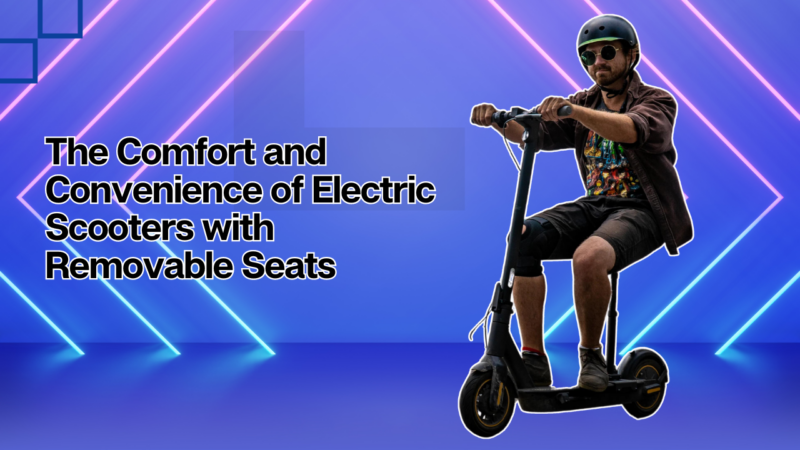
The Comfort and Convenience of Electric Scooters with Removable Seats
Wondering why e-scooter seats are so comfy? Dive into the cool vibes of cruising with these seats and get all the details on the comfort and convenience they bring to your ride!
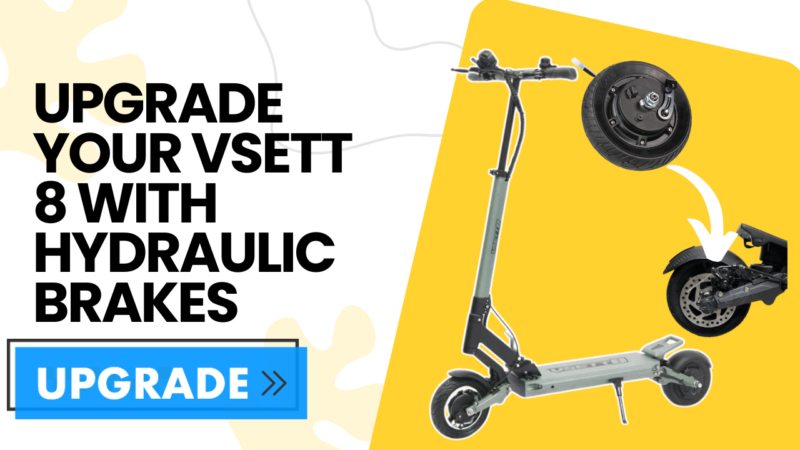
Upgrade Your Vsett 8 with Hydraulic Brakes
Upgrade your Vsett 8 electric scooter to hydraulic brakes for improved performance and reliability. Explore pros and cons to make an informed decision.

Discovering the Best E-Scooter Tours in Switzerland
Explore the best e-scooter tours in Switzerland, from Lake Geneva’s stunning shores to the breathtaking Jungfraujoch adventure and check our stores on the way.

Global Impact of Electric Scooters on Tourism
Worldwide, electric scooters impact tourism by offering eco-friendly journeys through iconic landmarks, cultural treasures, and breathtaking natural settings.
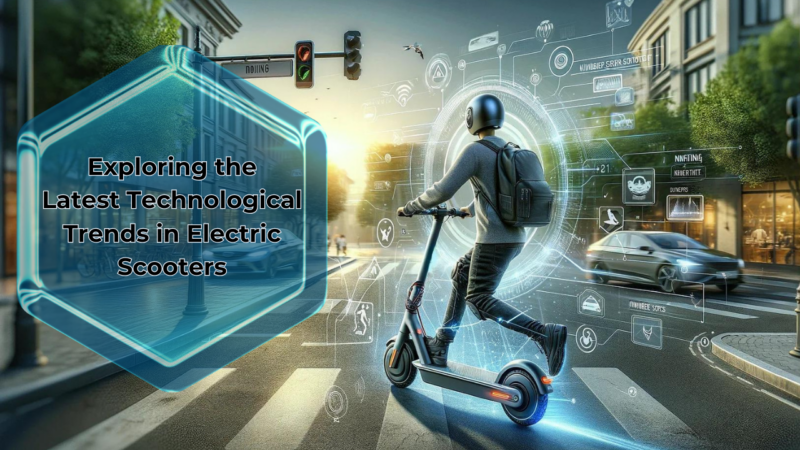
Exploring the Latest Technological Trends in Electric Scooters
Explore electric scooter innovation with smart connectivity, extended battery life, foldable designs, regenerative braking, and the integration of AI for a smarter ride.

5 Reasons Why E-Scooters Are Great for Commuting
Skip traffic, stay fit, and roll into daily adventures with the coolest and most convenient ride in town. Become an e-Scooter rider!

Nami-E Viper vs Kaabo Warrior X Pro
NAMI E-VIPER and Kaabo Wolf Warrior Pro are both powerful and capable electric scooters, but they have some key differences that may make one a better choice for you depending on your needs.

5 Essential Tips for Winter Riding
Explore five essential tips to winterize your e-scooter. Winter temperatures can have a significant impact on battery performance. Before winter arrives, lubricate the scooter’s moving components…

Things to Consider When Buying an Electric Scooter
Advice from experts on what I need to know before purchasing the e-scooter. Where to repair it when it comes to the problem? All important questions that need to be answered before buying an electric scooter.

How much does it cost and where to charge an e-Scooter in Switzerland?
How to calculate the cost of charging an electric scooter? Where do you charge electric scooters for free? Thankfully, charging an electric scooter is an easy and convenient process.

Are electric scooters legal in Switzerland?
What many people do not know is that traffic rules also apply to e-scooters. How much does an e-scooter penalty cost? Where can I drive? What does mean “maximum speed”?

Essential Accessories for E-Scooter
Finding the best e-scooter accessories is not that easy. The selection is huge. Which accessories for e-scooters are really necessary?

Maintaining you electric scooter
Maintenance your electric scooter and prolong the battery life. What needs to be checked before ride and enjoy LifeRacer.ch FREE 1000km e-Scooter service.

VSETT 8 vs. LIFERACER EDITION
Vsett 8 Liferacer Edition is a big game changer! New black-gold color model, with better braking system and brighter, bigger and center-positioned display can really contribute to safety and comfort of your driving
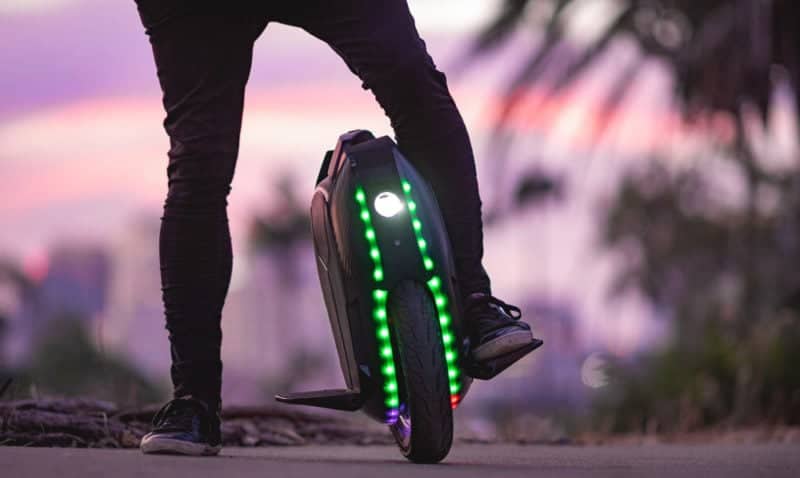
ELECTRIC UNICYCLES
Electric unicycles are a modern mode of transportation that has gained popularity in recent years. They are compact and lightweight, making them easy to carry and store. With the use of electric motors and batteries, electric unicycles can travel at high speed and reaching long range, are eco-friendly and produce zero emissions. Riding electric unicycle also provides health benefits such as improving balance, coordination, and core strength. Overall, electric unicycles offer a unique and exciting way to get around while being environmentally conscious and cost-effective.

BEST E-SCOOTERS FOR CLIMBING HILLS 2023
However, if you are going to buy an electric scooter, it must be suitable for the terrain on which you will want to ride on. So what is the best electric scooter for hills?

Single or Dual Motor E-Scooter?
Everything about E-Scooter motors. Pros and cons of dual hub scooters. How to maintenance E-Scooter motor? Which wheel drive to choose and why?
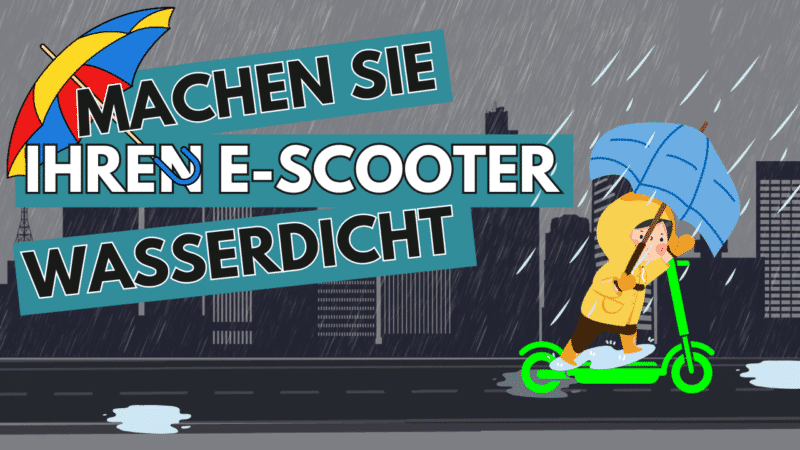
Waterproof your electric scooters
Is my e-Scooter waterproof? The rain got my electric scooter, what to do? Take the next step and waterproof your electric scooter! Check the list of Best waterproof electric scooters 2023.

The best tire type for the best e-Scooter performance
What is the best tire pressure for e-scooters?Three different types of electric scooter tires: pneumatic, solid, and honeycomb. How much air is too much or too little to put in your tires?



